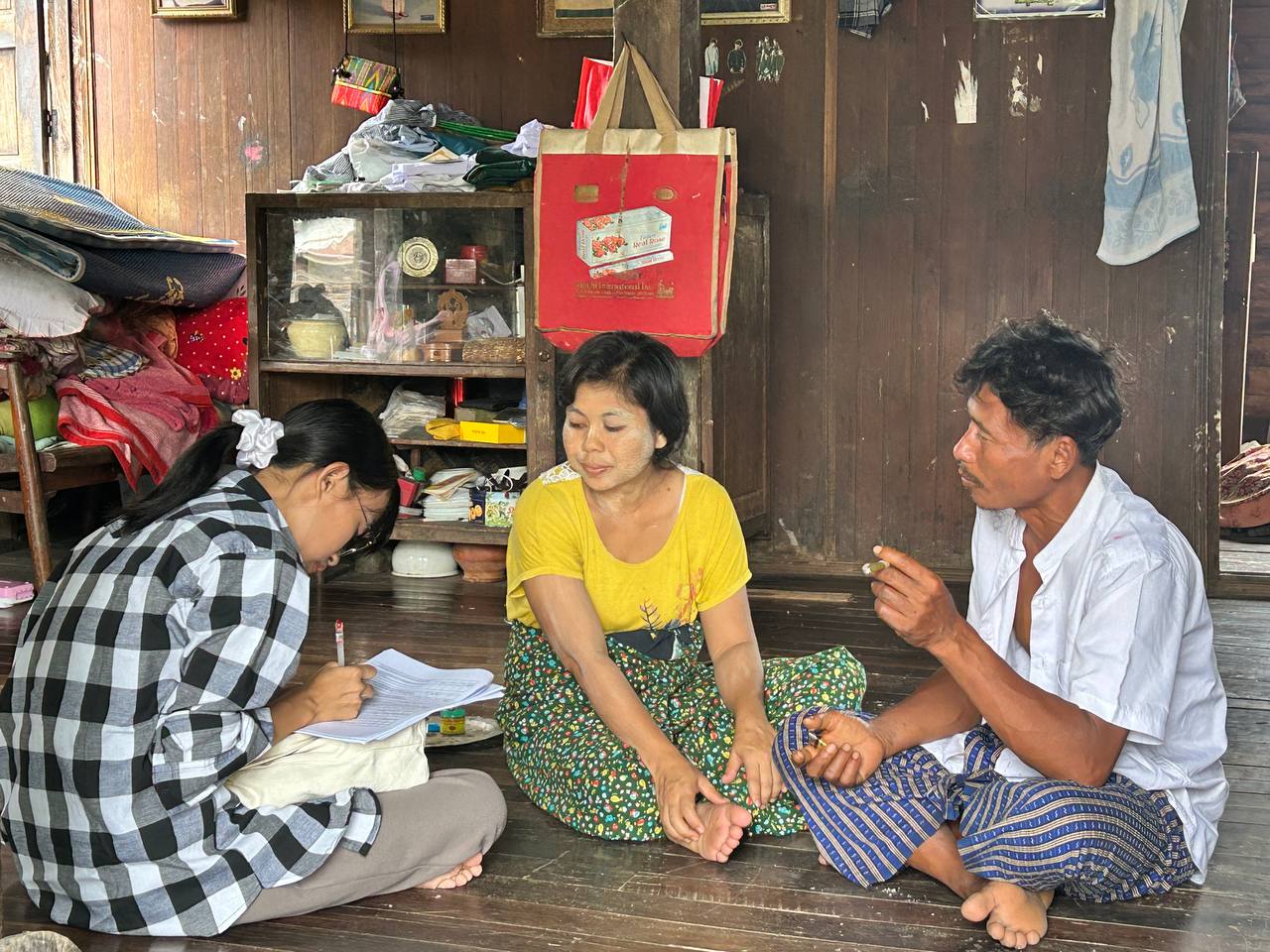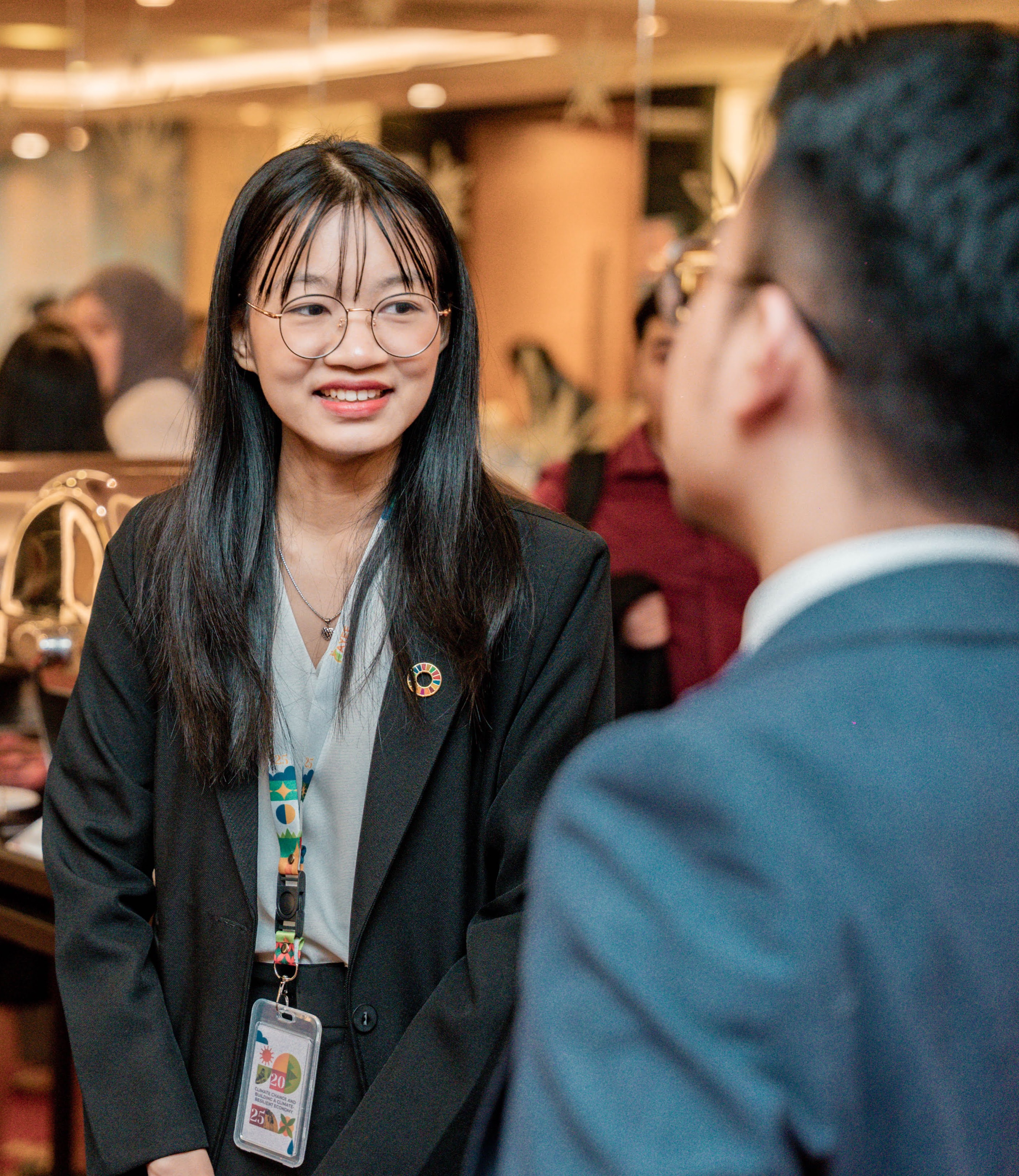
When I think about home, the first things that come to mind are the sound of the market in the morning, the smiles of local people, and the quiet beauty of our mountains and lakes. I was born and raised in Myingyan, a city in central Myanmar near Mount Popa and the famous ancient city of Bagan, surrounded by stories older than I could ever imagine. I’ve always found wonder in where I come from, and when I was young, I welcomed tourism as a bridge to allow newcomers to feel this wonder as well. But as I grew older, I began to focus on the negatives of tourism: the waste left behind, the changes to small communities, and the risk of parts of our heritage slowly disappearing.
How can we welcome visitors while still protecting what makes our home so special? That question lingered with me, and it sparked a journey to study tourism.
Back then, I was the only person from my hometown pursuing environmental studies. Some people asked why I chose that major at university instead of something more “practical.” But my mind was made up that understanding the environment was essential for Myanmar’s future. Later, I moved to Thailand, having received a scholarship to study Tourism and Hospitality Management there. I began to see how tourism and sustainability are deeply interconnected. Thanks to my school’s internship programs, I experienced the heart of the tourism industry first-hand, working in front offices and food and beverage departments in hotels across Thailand. I learned how hospitality connects people from around the world and how even small decisions inside a hotel can affect the environment outside it. I started asking my managers about their sustainability practices: how they managed food waste, where their ingredients came from, and whether they supported local communities.
Many hotels proudly displayed posters about their green initiatives, supporting local farmers or using eco-friendly packaging. However, as I looked closer, I realized that some of these actions were more about marketing than real impact. Meanwhile, behind the scenes, food waste bins filled up daily, and sustainability wasn’t always a part of staff discussions. There were inspiring places too, though — hotels that truly cared, that educated their staff and worked closely with local suppliers. My experiences taught me that the gap between “green talk” and “green action” is wide, but also that it’s a gap we can close if we try.

Collecting survey data for flood risk management training in Myanmar.
Growing up near the Irrawaddy River further shaped how I see the world. During the rainy season, floods were common. I remember watching people throw their garbage into the river, believing the water would simply carry it away. I didn’t understand then that this mindset — born from habit, not malice — was harming the environment we depended on.
Without first understanding the connection between their actions and nature, people have no cause to make better choices.
Now, when I consider my generation, I see so many young people who care deeply about our planet. They’re curious, creative, and eager to learn. I truly believe that, if we’re given the right knowledge and support, we can drive real change. I want to help build a tourism industry in Myanmar that protects ecosystems while creating opportunities for local people, one that celebrates our culture without destroying it.
For me, sustainable tourism is not just a subject I study; it’s a promise to my home. A promise to protect what I love and to make sure others can love it too, without harming it. In the future, I hope to create a platform to share environmental knowledge with students and communities, especially in remote areas where access to education is limited. Because sustainability starts with awareness, and awareness starts with learning.

Attending the ASEAN Youth Economic Forum 2025.
Tourism has the power to bring us together. But it only becomes meaningful when it respects both nature and people. I believe that even small interactions — a conversation, a shared story, a lesson taught — can inspire others. Change begins close to home. If we can influence the people around us, the message can spread throughout our cities, across our country, and beyond.
I may still be a student, but I’m walking this path with hope — hope that my small steps, and the steps of others like me, will lead toward a more sustainable and caring future, for Myanmar and for the world at large. All positive change begins with care, and every act of care begins with us.
Pyae Pyae Phyoe is a Burmese student studying Tourism and Hospitality Management in Thailand. As a 2025 Max Thabiso Edkins Climate Ambassador, she works to promote climate awareness and youth engagement across the region. She hopes to help shape a more sustainable tourism sector that uplifts communities in Myanmar.
Banner image by Yen Nguyen, Pexels. All other images courtesy of Pyae.



